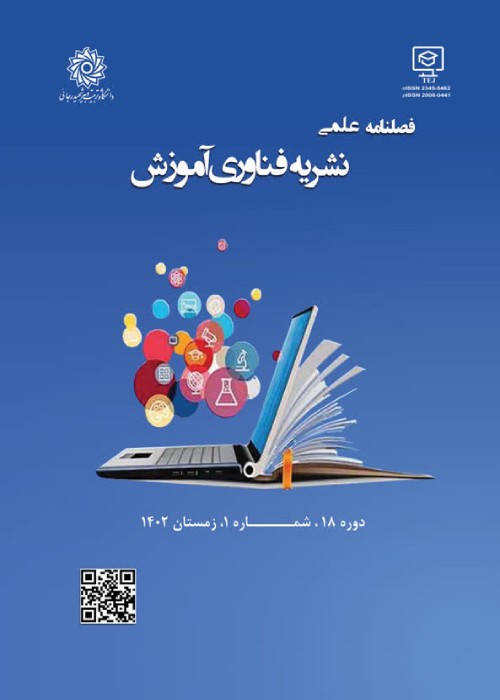The role of psychological empowerment in the relationship between ambidextrous leadership, teachers' job satisfaction, and stress in virtual education
The outbreak of the Coronavirus posed a serious crisis to commercial and educational organizations and institutions. In the face of such a crisis, the transition from face-to-face to virtual education was one of the strategies of educational institutions, especially schools, and this caused increased additional work pressure on teachers as one of the pioneers of the teaching-learning process. Thus, in the face of such a situation, school leadership plays a very effective role in increasing the efficiency of individuals and reducing the tensions caused by rapid environmental changes. One of the leadership styles that can help school leaders achieve this is to use of an ambidextrous leadership style. Ambidextrous leadership is a new type of leadership style that consists of two different spectrums of leadership behaviors and uses open and closed leadership behaviors in a balanced and complementary way to deal with environmental changes. Ambidextrous leadership is related to increasing organizational agility and performance and means the ability to use both hands with the same power. Ambidextrous leadership can have many effects on self-efficacy, job attitude, etc.; so, the research on the effect of this style of leadership has been considered by many researchers in recent years. Given the lack of research on this style of leadership, especially in educational settings in Iran, the need for doing such a study was felt. Accordingly, the main purpose of this study was to investigate the effect of ambidextrous leadership on teachers' job satisfaction and stress in virtual education with the mediating role of psychological empowerment.
To achieve this aim, the researchers used the correlational research method by structural equation modeling. The statistical population of the study included all primary school teachers in Takestan city. Considering the uncertainty of the actual number of teachers, we selected the maximum sample size (335 teachers) by using simple random sampling. Data collection was performed by using the ambidextrous leadership style questionnaire, the psychological empowerment questionnaire, the job satisfaction questionnaire, and the job stress questionnaire. Data analysis was performed by the statistical technique of structural equation modeling (confirmation path analysis) and Pearson correlation test in two statistical software SPSS and AMOS.
The findings of the study indicated the open leadership style on empowerment (0.637) had a significant and positive effect, the closed leadership style on empowerment(0.365) had a significant and positive effect, the empowerment variable on job stress (0.313) had a significant and negative effect, the closed leadership style on job stress (0.314) had a significant and negative effect, the open leadership style on job stress (0.449) had a significant and negative effect, the empowerment variable on job satisfaction (0.224)had a significant and positive, the closed leadership style on job satisfaction(0.350) had a significant and positive, the open leadership style on job satisfaction (0.235) had a significant and positive, also the job stress on job satisfaction (-0.327) had a significant and negative effect. Findings also revealed that the closed and open leadership style had an indirect and significant effect on job stress and job satisfaction through the empowerment variable, and the empowerment variable had an indirect and significant on job satisfaction through the job stress variable. In addition, the measurement and fit indices of the model also indicated the desirability of the model.
Overall, the results of the study showed that by using both ambidextrous leadership and empowerment in schools, we can reduce teachers' job stress and subsequently increase their job satisfaction. Therefore, this style of leadership can be used as a useful tool for effective leadership in schools.
- حق عضویت دریافتی صرف حمایت از نشریات عضو و نگهداری، تکمیل و توسعه مگیران میشود.
- پرداخت حق اشتراک و دانلود مقالات اجازه بازنشر آن در سایر رسانههای چاپی و دیجیتال را به کاربر نمیدهد.




